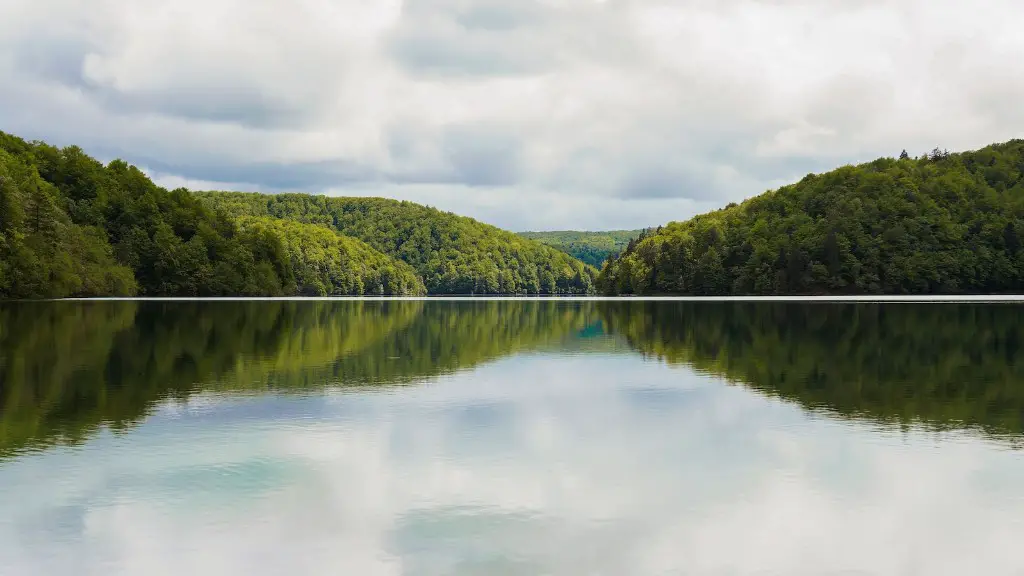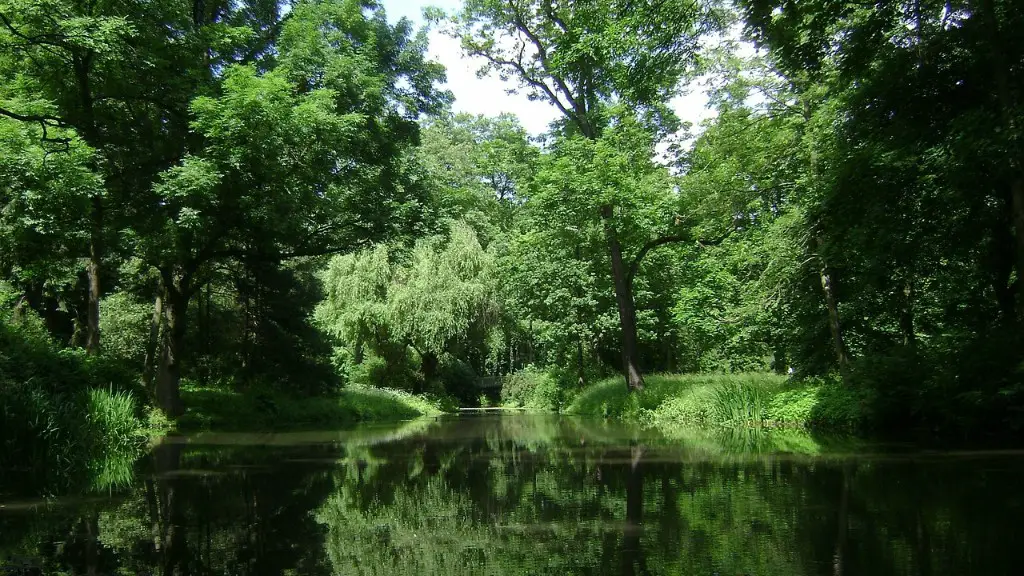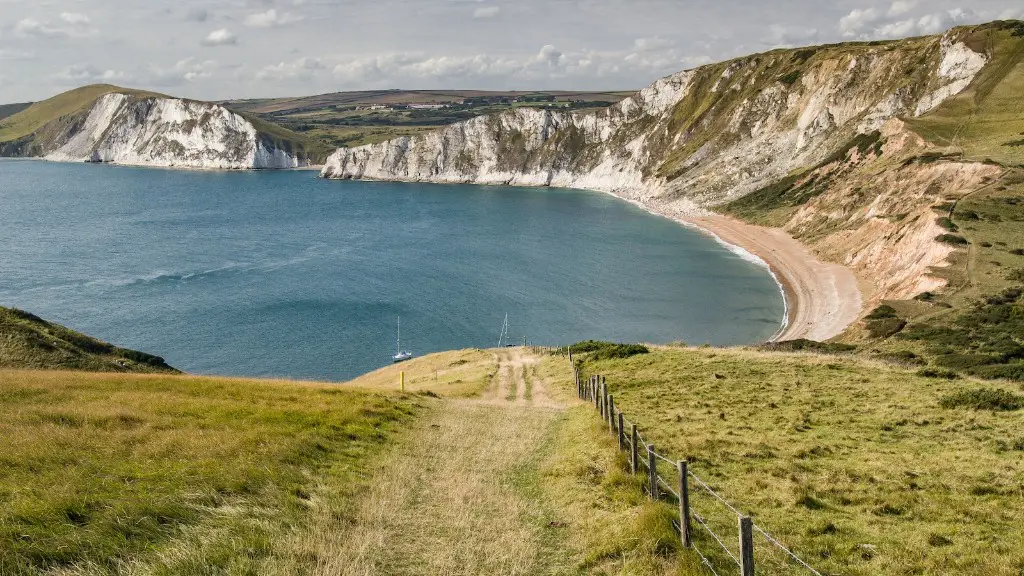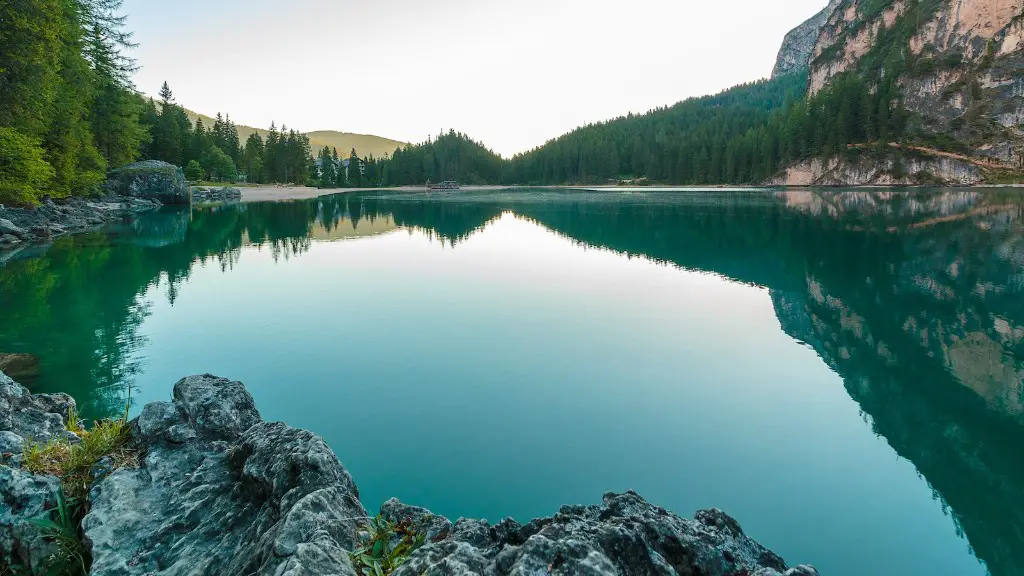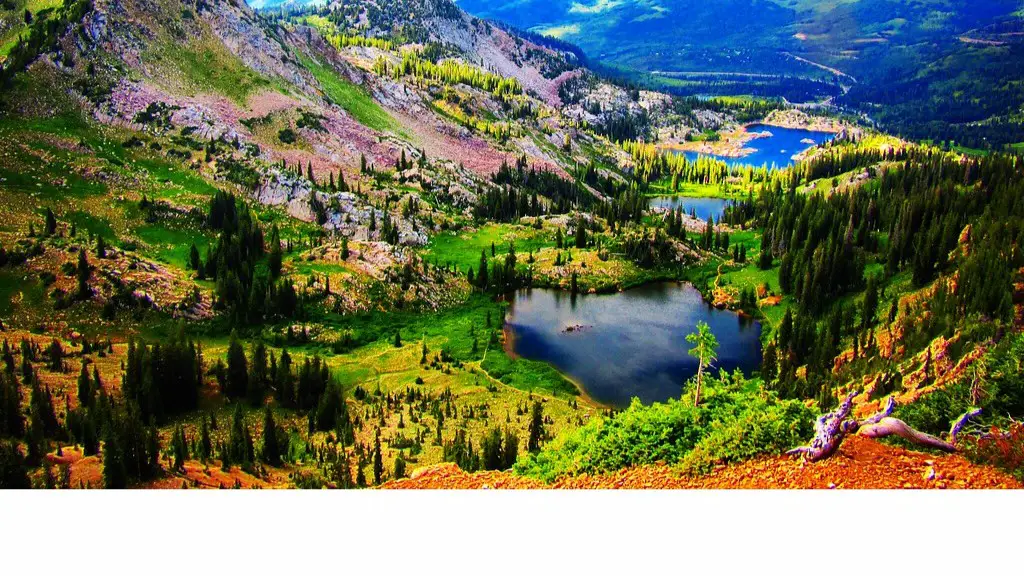Natural beauty
The pristine beauty of Lake Baikal is one of the main reasons why it is so important. Located in the Republic of Buryatia in southeastern Russia, the lake is home to an array of unique wildlife and unique underwater features. It is the deepest of all the world’s freshwater lakes, reaching depths of up to 1,637 meters. Its water is exceptionally clear and filled with an abundance of life. There are over 2,500 species that can be found in and around the lake, many of which are unique to the region.
The surrounding landscapes provide astounding views of its waterside. Rugged cliffs, spring-fed spas and mountain ranges add to the breathtaking scenery. Its fantastic views are a source of inspiration for tourists and locals alike, who come to see the fantastic beauty of the lake.
Not only is Lake Baikal one of the most beautiful places in the world, it is also one of the most important. The lake has been made a UNESCO World Heritage Site, as its incredible biodiversity and stunning natural scenery are worthy of admiration.
Historical Significance
As well as natural beauty, Lake Baikal is also important due to its historical value. Evidence of ancient Paleolithic people living within 100 kilometers of the lake has been discovered, providing evidence of the lake’s early importance to humans.
In addition to its historical significance, the lake also plays an important role in the religious and cultural practices of many Siberians. The lake’s “local animate” deity has been worshipped for centuries; this spirit is said to protect the lake and its inhabitants.
The importance of Lake Baikal has been recognized by the people of the region for centuries, and it continues to be an important part of the region’s culture and tradition.
Environmental Impact
One of the most important aspects of Lake Baikal is its impact on the environment. Stretching over 636 kilometers, the lake covers one sixth of the world’s unfrozen freshwater reserves. It is estimated that the lake contains up to 20% of the world’s total freshwater supply.
The lake is also an important source of food, with many of the local fishermen relying on the abundance of fish in the lake for sustenance. The lake’s tremendous population of sturgeon is especially important; the giant fish can grow to over 2 meters in length and are considered to be critically endangered.
Finally, the unique features of Lake Baikal, such as its depth and volume, make it a special place for scientific studies. With its unique environment, the lake provides a great opportunity to study the effects of global warming and climate change.
Threats to Lake Baikal
Despite its many important features, Lake Baikal is not immune to threats. Since the Soviet era, the lake has been under significant pressure from pollution and unsustainable human activities.
In particular, industrial development and the presence of oil pipelines have had an impact on the lake. Pollution from local industries, agricultural run-off, and inadequate waste management practices have caused significant damage to the lake’s aquatic ecosystems.
The Russian government has implemented some measures to protect the lake, but unfortunately, these are not enough. The lake’s beauty and biodiversity is under constant threat.
Prospects for the Future
The future of Lake Baikal is uncertain, but preservation efforts are being made in order to protect it. There is an increasing awareness of the lake’s importance and the need to conserve it.
Organizations such as the Baikal Caucus have been formed by lawmakers from various countries in order to better support the protection of the lake. Money is raised for litter clean-up, conservation projects and awareness campaigns. International press coverage is also creating more global recognition for the need to protect the lake.
These initiatives offer hope for the future, but ultimately the future of the lake lies in the hands of the local people and their willingness to protect it.
Environmental Education
One of the best ways to ensure the future of Lake Baikal is through environmental education. Awareness raising is key to preserving the lake, as people need to understand why it is important and how it can be preserved.
The importance of Lake Baikal needs to be made clear to the local people, who are the main stewards of the lake and its resources. If they are educated about the lake’s importance and the risks it faces, they will be more likely to make conservation a priority.
Organizations such as the Baikal Nature Reserve provide educational programs for both tourists and local people, in order to raise awareness of the lake’s importance.
Conservation Efforts
Conservation efforts need to be continued in order to preserve the future of Lake Baikal. Local, regional and national government efforts must be supported, as well as the initiatives of private organizations.
One of the most important things that needs to be done is to reduce the level of pollutants entering the lake. This can be done through better waste management practices, stricter laws, and campaigns to raise awareness of the importance of preserving the lake.
In addition to this, biodiversity conservation initiatives need to be established in order to protect the unique species that call the lake home. This includes protecting coastal wetlands and other important habitats.
International Recognition
International organizations such as the United Nations are increasingly recognizing the importance of Lake Baikal. In 1996, the UN established the Global Environment Facility, which supports conservation efforts in various parts of the world. Recently, this initiative has become particularly active in protecting the lake.
The UN’s attention to the lake has been accompanied by similar efforts from other international organizations, such as the World Bank and the European Union. International recognition of the lake’s importance helps to highlight the need for ongoing conservation efforts.
International recognition has also led to the establishment of sustainable tourism initiatives, which aim to raise awareness, educate visitors, and provide financial support to conservation initiatives.
